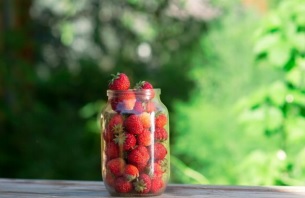The year has come to a sudden end – at least, that is the case when it comes to resources. This year, 29th July 2021 marks Earth Overshoot Day – the day where we have consumed and used all ecological resources and services that the Earth can regenerate in that year.
The later this day arrives, the better we managed our resource consumption. However, the past decades have shown that the date is getting earlier every year. While last year’s Earth Overshoot Day fell on 22nd August, pushed back by the pandemic-related lockdowns, this year’s resources will be consumed three weeks earlier, with the main drivers being increased carbon footprint and deforestation. In 1970, National Overshoot Day fell on 29th December – seven months later than this year.
But how can we #MoveTheDate? Projections show that reducing global carbon emissions by 50 percent would already move Earth Overshoot Day by 93 days – which is more than three months. Manufacturing brands such as GROHE are therefore working on reducing their emissions drastically.
Since April 2020, GROHE has been one of the first leading manufacturers in the sanitary industry to produce CO2-neutral. However, CO2 emissions are only one part since there are plenty of other resources that need to be handled with care, such as water or other natural resources. For this reason, GROHE focuses on products that are not only water- and energy-efficient, but also follows the Cradle to Cradle® (C2C) design concept: a product is designed and manufactured with the intent of using its components in its end-of-life-phase for the creation of new products. To start this circular journey, GROHE launched four bestsellers as Cradle to Cradle Certified® variants at Gold level.
Since each and every one of us can contribute to #MoveTheDate by preserving our resources, GROHE curated some helpful tips and hacks as an inspiration to get started
1.Collect rainwater to water our plants
Plants are craving water, especially in summer. However, we can reduce our water consumption easily by collecting rainwater in jars or barrels and using them to water our plants. This contributes to counteract water scarcity while also having the potential to save emissions as the more plants we grow the more carbon dioxide is absorbed.
2: Use soap bars to save plastic
Soap and shampoo bars are the perfect solution to start eliminating plastic from our bathrooms. With products ranging from body scrubs, body soap, facial wash to shampoo and conditioner, the variety is now meeting individual preferences and needs, while replacing numerous plastic bottles and jars. Soap bars are also perfect for travelling too!
3) Increasing shelf life of food
Often food goes to waste unintentionally by simply going bad faster than we thought. However, there are some helpful tricks that increase the shelf life of food. Storing an apple with potatoes prevents them from sprouting. Removing strawberries from their original packaging and placing in a glass jar makes them last longer by weeks. Storing spring onions in water also increase their shelf life.
4) Closing the pot for cooking
There are several smart and easy ways to save energy in our homes. One is to cook with a saucepan lid on since it takes up to 1/3 less energy, amounting to savings of just under £40 and 100kg CO2 emissions per year if we use the lid in five cooking sessions per week.
Bringing vegetable bags for shopping
Often food goes to waste unintentionally by simply going bad faster than we thought. However, there are some helpful tricks that increase the shelf life of food. Storing an apple with potatoes prevents them from sprouting. Removing strawberries from their original packaging and placing them in a glass jar makes them last longer by weeks. Storing spring onions in water does not only increase their shelf life but also lets them continue to grow. There are several smart and easy ways to save energy in our homes. One is to cook with a saucepan lid on since it takes up to 1/3 less energy, amounting to savings of just under £40 and 100kg CO2 emissions per year if we use the lid in five cooking sessions per week.
Whether at the weekly market or in supermarkets, vegetables and fruit do not need to be wrapped in plastic or paper bags, which are usually thrown away after being used. Instead, why not invest in vegetable bags with which you can pack your loose vegetables and fruits.





